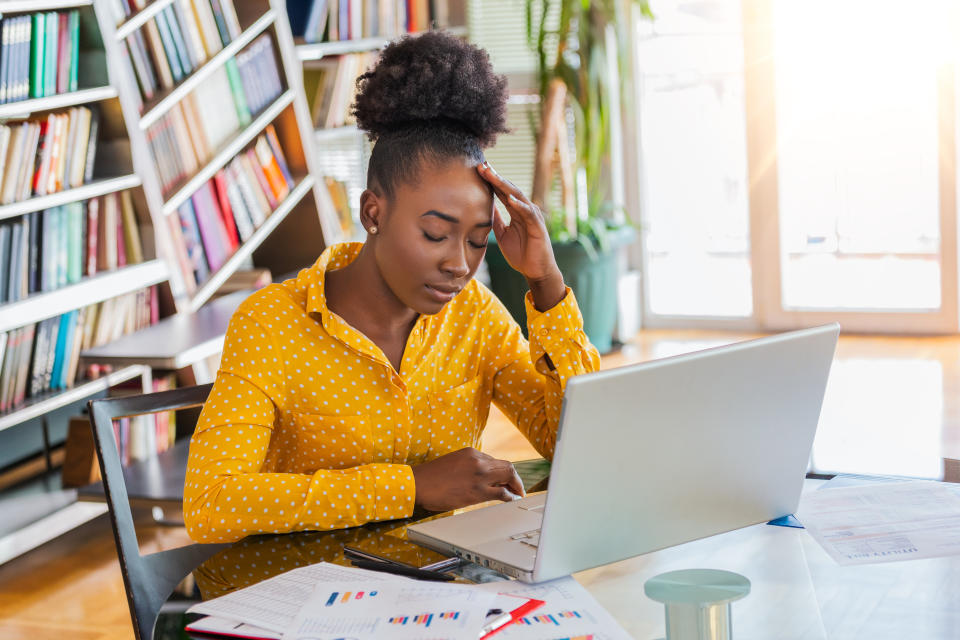Coronavirus: How employers can support people's mental health as they go back to work

After seven weeks of lockdown, people who are unable to work from home have been told they can return to their jobs as part of the UK government’s partial easing of coronavirus restrictions.
As some countries ease coronavirus restrictions, however, mental health experts are noticing an emerging phenomenon — anxiety about life after lockdown. The fear of a second wave of infections, as well as getting used to life outside of our homes once again, is causing stress and anxiety for many. So what can employers do to make the transition back to work a little easier?
“Over the past months, we’ve witnessed the world turn upside down due to COVID-19, and there is no doubt that this has affected people’s mental health. Our mental health is defined by our psychology, biology and environment and all three of these areas are currently under threat,” says Dr Nick Taylor, a clinical psychologist and CEO and co-founder of Unmind, a digital workplace mental health platform.
“We must prepare for the fact that many people will return to work while experiencing new or existing mental health challenges —especially as events continue to unfold.”
READ MORE: What might social distancing look like in the workplace?
There may be anxieties about returning to work, even at a socially safe distance. “Recognising the psychological impact of returning to a 'new normal', which for many is an alien environment, is as important as addressing the logistical issues,” Dr Shainaz Firfiray, associate professor of human resource management at Warwick Business School.
“In some workplaces, adhering to social distancing guidelines might be impossible and as such employees will be worried about the health risks they might face when businesses reopen. There will also be a lot of anxiety on how workers can safely commute to work as avoiding public transport may not be a workable option for many workers.”
Communicate well
Not knowing where you stand with regards to your work or the future of the business can make anxiety far worse. While many businesses don’t yet know how things will pan out for them, employers must communicate what they do know.
“Employers must be able to continuously provide concrete, clear updates from trustworthy sources to their teams, but also ensure that personal, one-to-one, check-ins are available to all employees,” Taylor says.
The deluge of news coverage about the coronavirus can be overwhelming, but avoiding the topic altogether will create a vacuum for misinformation. Speculation can fuel anxiety, so it is essential to distill the right information from trustworthy sources.
Check in with people
It’s also crucial for employers to check in properly with their staff — to listen to any questions they may have and provide support. “I can’t overstate the importance of reciprocal communication during the coming weeks across a company, and personal level,” he says.
READ MORE: Why ‘meaningful’ work is going to become more important post-coronavirus
“Consistent two-way communication will be critical for employers and employees to understand the concerns that may arise as the return to work process takes hold.”
Taking an individualised approach is important, but it doesn’t have to be complicated. It could be as simple as letting people know there’s someone they can speak to for advice — no matter what their concerns are.
Be empathetic and flexible
Some people may have no problem returning to work — and may welcome being able to work in an office once again. But for others, the transition will be harder. People who are prone to anxiety might find it particularly hard to tolerate the uncertainty and will likely experience a heightened sense of threat. It’s crucial not to expect too much from employees straight away.
“It is important to understand that everyone’s situation is unique — while some people will re-enter the workplace relatively seamlessly, others will need more support,” Taylor says. “Employers need to be ready to listen and advise, and be able to signpost employees who are experiencing mental health challenges to the right tools.”
READ MORE: Will ‘busyness’ stop being status symbol post-COVID-19
It’s important for businesses to be flexible, too. Some people may still need to work from home, particularly if they have children who aren’t currently in school, or other responsibilities. “Never has it been more important for both employers and employees to be empathetic, understanding and supportive towards one another,” Taylor adds.
“While the priority for many will be sorting out the details on new social distancing measures and office workspaces, it is of equal importance that employers work to ensure they have a robust wellbeing programme in place to support those returning.”

 Yahoo Finance
Yahoo Finance 
